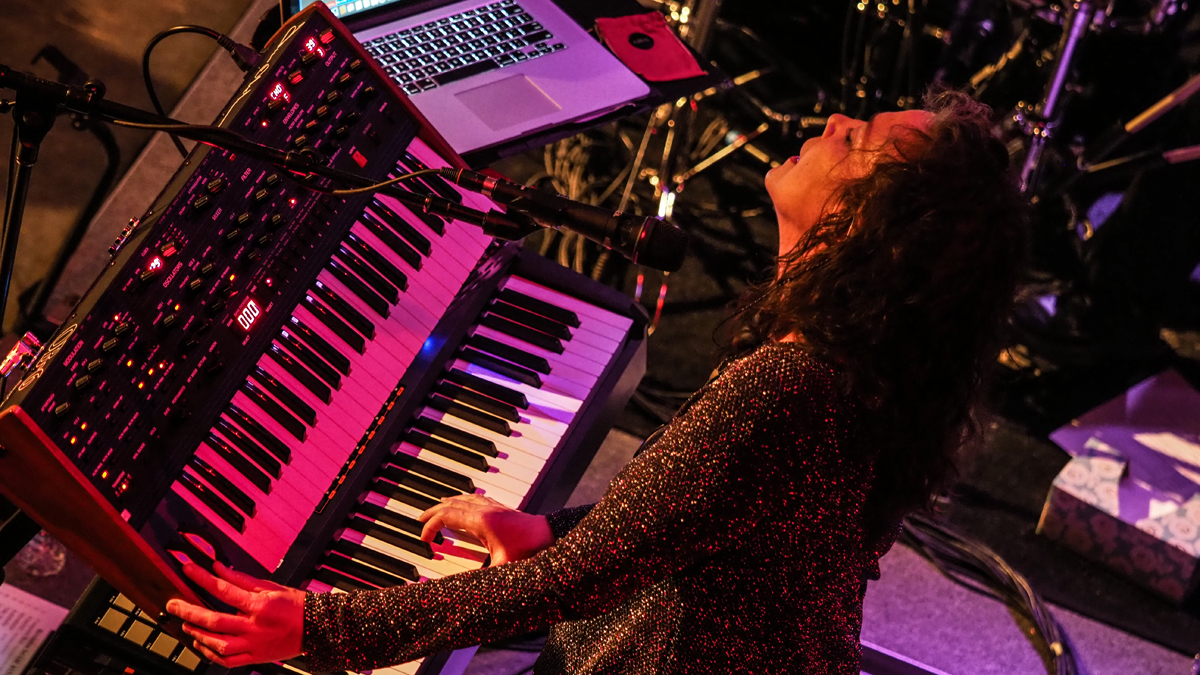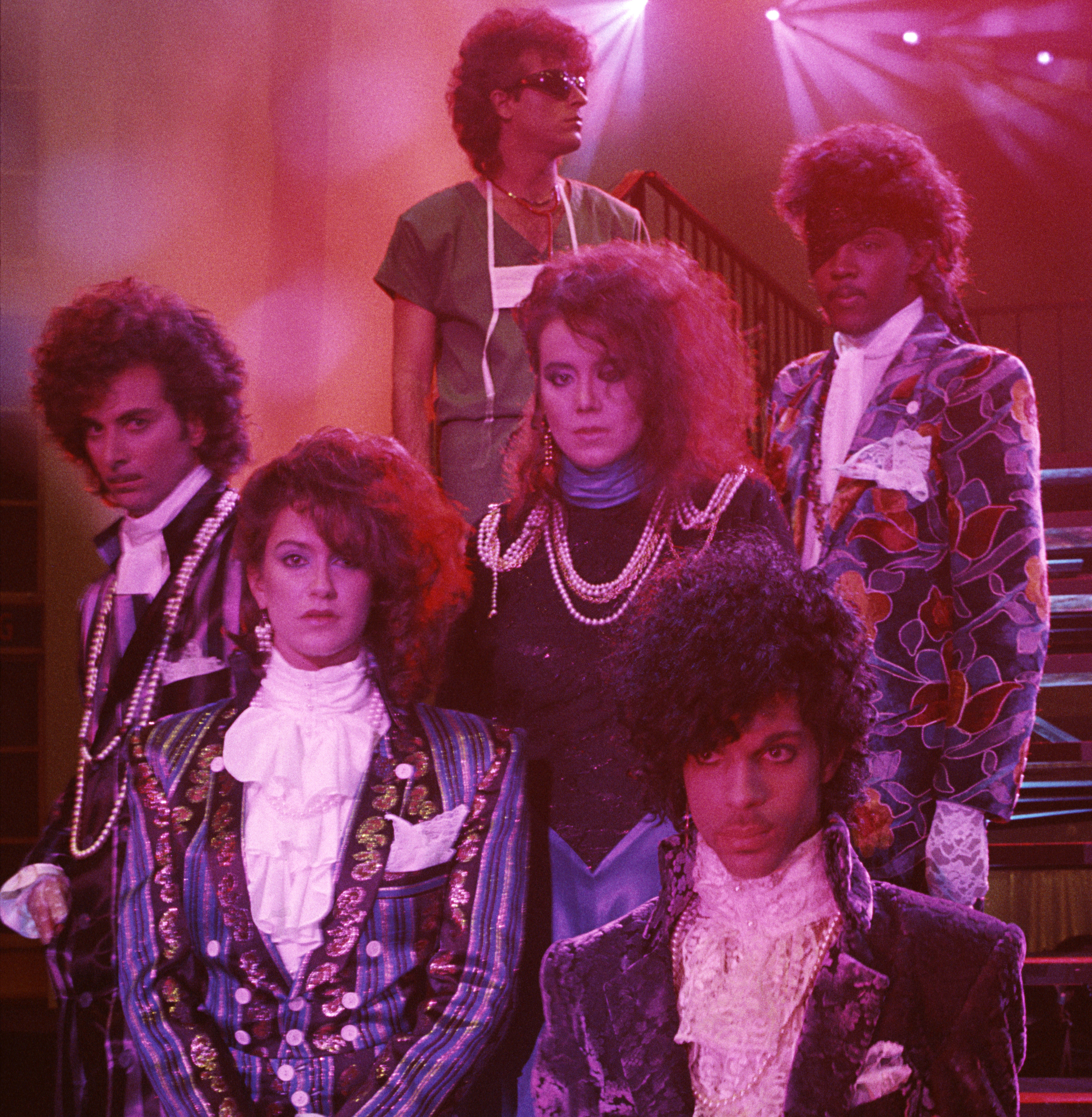
Best of 2019: “There’s a direct connection between music and sound. That’s why this record has all different kinds of soundscapes on it,” Lisa Coleman tells me from her Los Angeles studio.
Known best for her groundbreaking work with Prince and the Revolution, (as well as myriad film and television scoring projects), the keyboardist and composer recently released Collage, an 11-track recording of affecting piano instrumentals. We talked to her about the impetus behind her new recording, and the lasting legacy of Prince and his music.
We were talking to Bruce Hornsby recently about his latest album Absolute Zero, and we spoke of how sometimes the sound of a song can be as important as the song itself. You seem to evince that concept on your latest instrumental album, Collage. Each song has its own sonic story to tell.
“Absolutely. I’ve spent a lot of time alone with my instrument. I’m really into the subtleties of it, like the space in between the notes and the overtones and how notes decay. It all means something to me.”
When Prince died, it threw my life into an unexpected spin.
What was the impetus to make a solo piano record?
“When Prince died, it threw my life into an unexpected spin. I lost a number of scoring gigs because I decided to tour with The Revolution. We needed to go through that process together, but I also needed to make a statement about who I am right now, because I think it got scattered.
“I was on another road. I’m 58 and I’ve been composing for 20 years. Then all of a sudden, my love died. Putting this album out happened suddenly. I put it together in a hurry because I felt like I need to do it.”
Want all the hottest music and gear news, reviews, deals, features and more, direct to your inbox? Sign up here.
Were all of the pieces composed before the idea for an album materialised? Or did you write them for the project specifically?
“They were all lying around previously.”
We noticed that a number of the compositions are titled in an almost avant-garde kind of way, for instance Piano Improv 77. Is that a nod towards contemporary classical composition?
“I’m afraid it’s not quite as mysterious as that. It was simply me saying, 'This is improv number so and so'. But luckily for me, the numbers did end up having meaning. Things sort of connected, and that’s why I decided to call the album Collage. I tried to describe in the album’s liner notes that, as humans, that’s what we do. We grab a little bit of this and that, putting it all together to make who we are. That’s what made my style as a player. When I’m not thinking and just improvising, all of the pieces that made me who I am come spilling out.”
Who would you cite as some of your pianistic influences?
“Bill Evans, Arthur Rubinstein, Keith Jarrett, Herbie Hancock and lots of others.”
What was the gear setup you used to record the album?
“It depends on the piece. The Prophet pieces were all done on a Steinway grand. Michael Perfitt engineered them and they were done pretty straight-up with just a little reverb. On those I used a [Sequential Circuits] Prophet-5 to create the drones underneath.
“The song PianoBytes was fantastic because that was all computer manipulated. We edited notes backwards and looped them using a lo-fi plug-in to sweep the sound. That was probably the most gear-geeky piece on the project because of the way we used acoustic instruments and then flipped everything around.”
The first piece, Piano Improv 77, sounds as if there’s a tape delay or a slap echo in the soundscape. It’s not just, ‘Here’s a piano!’ You’re framing each piece in its own aural way.
“I put a little ‘room’ on that one to add to the lonely quality of the sound. It’s not just a direct piano recording. It’s like a small hall reverb, but then I EQ’d the return to be a little darker. I cut off the frequency to make it a little more round.”

You seem to be have been deeply involved in the way the sonics were shaped on the album. Many people write and record the music, but then say, “OK, now it’s your turn to finish it!” You’re actually thinking how you want to process the music once it’s been captured.
“Absolutely. I grew up doing that, having to produce myself. Even as a child, my father had an ARP 2600 that he bought, funnily enough, from Tom Oberheim, who worked at ARP at the time. This was around 1971. So I had an early exposure to sound and the difference an EQ or cutoff filter could make. That little things could make a huge difference. I’m highly involved in the sound.”
Has there been any talk of taking the album on the road and playing some concerts around it?
“Yeah, definitely. The funny thing is that these pieces are mostly improvs, so I’d either have to learn them or just improvise. It’s like, ‘Buy a ticket at your own risk!’ But I’d love to do it.”
Besides the new album and your film and television scoring career, most people know you from your work with Prince and the Revolution. The last time we spoke, you talked about how the analogue synths you used during that time had a soul all their own. Are there synths that stick out in your mind from that era?
“Definitely. Oberheims were a huge part of our sound. And the presets were so great and big and fat!
Oberheims were a huge part of our sound. And the presets were so great and big and fat!
“Prince was incredibly bold in the way he would just use a preset and then brighten the fuck out of it! He would turn the filter way up so the sound would cut through the mix. I still have the OB-SX from those days. It’s one of the most simple Oberheims - there are just a few knobs on it, but that was the most quintessential keyboard from that era.
“There’s the organ sound from When You Were Mine or The Beautiful Ones. If you play that organ sound with a delay pedal, there you go! And the horn punches? Play [preset] C1. That’s the sound!
“The only other thing that really sticks out would be the ARP Omni. It had a kind of funny, nasal quality to it. But that’s the Dirty Mind sound. That one was written on the ARP Omni, and played by [Dr] Matt Fink. If you play those chords on that keyboard, you’ll swear you just put the album on. Those were very simple things. There wasn’t a lot of editing going on.”
It was the attitude of how they were played, not the fact that they were presets.
“Exactly.”
How much did Prince dictate what you had to play and how much freedom you had to express yourself?
“It just depended on the song. He was so prolific. One day he would come in and have a whole song written. He would pass out the parts at rehearsal and say, ‘Why don’t you check out this organ part?’ And then he’d go over to Matt’s station and say, ‘Check out this string part.’ But then on other days he’d just come in and say, ‘groove in E!’ He’d ask each one of us, ‘What you got?’
“So, it was a real balance, and I have to say that, back then, The Revolution was one of the only times he opened himself up and really drew from other people’s sound. Wendy [Melvoin]’s sound on the guitar, Matt’s style on the synthesizer, etc. And that’s what made Prince and the Revolution what it was.”
So later on, it was more that people were paying homage to him, rather than him feeding off of them?
“Oh yeah. Definitely.”
Did you get fined for making mistakes at gigs? This is a rumour I’ve heard!
“I didn’t personally, because I never made a mistake! [Laughs]. But it’s true. He fined people.”
How intense were the rehearsals with Prince?
“They were very intense. We showed up around 10 in the morning. Sometimes he would already be there, and other times he’d roll in later. And we’d be there all day until nighttime. Sometimes [the band] The Time would come in around 8 o’clock and they’d start rehearsing, but then we’d go to the studio and Prince would be working. It was non-stop.
“Rehearsals were like a spin class or a sweat lodge. We could play the same groove for a number of hours. I’m not exaggerating. And Prince would work on things and walk in and out of the room saying, ‘Don’t stop! Nobody move!’ So it was a workout. We were like marathon runners.”
What about gigs? Was there a lot of spontaneity or was everything super-rehearsed?
“It was a combination of both. We were just so completely in shape and trained that if Prince decided he wanted to jump to the left, he’d just give us a hand signal and we’d all jump to the left. And every night was different. We had a setlist but even that would change. He was a crazy man. We’d hit a groove and if it was really working and he was in a good mood, that could go on for 20 or 30 minutes with different hand signals and horn punches.
“Then he’d try and stump the band. He’d do this thing where he’d drop a handkerchief and when it hit the ground, we’d have to hit a horn punch. So it was kind of crazy!”